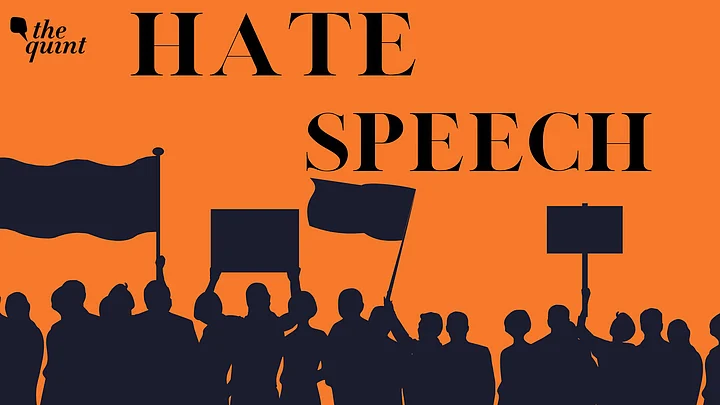“It has been observed that you are using Social Media for posting offensive, malicious and inciting posts. (sic)”
These were the words employed by an officer of the Cyber Police Station, New Delhi in a notice under Section 149 CrPC issued to a news organisation. The notice further warned of “strict penal action” and directed the news organisation to “refrain from doing so”.
But what was the post in question?
The news organisation, which goes by the name of Molitics, had tweeted a video report of a Jantar Mantar ‘Dharam Sansad’ where inflammatory calls for violence were made and hate-speech was spouted with gusto. Pertinently, the discourse was targeted at members of the Muslim and Christian communities.
What Molitics had done was cover the incident, ask critical questions of the speakers and the attendees and share their video report on Twitter. And pat came the notice, under Section 149 CrPC (which the police incidentally tweeted under the video link).
This section empowers the police to issue notice in a bid to prevent any cognizable offence. While, it may be valid for the police to apprehend a law and order situation and do what it can to prevent a crime, is it fair of the police to issue notice to the reporting agency?
Several civil society activists and journalists have, since the issuance of this notice, asked if the police has taken any action against the organisers of and the speakers at the event. Also, it may be fair to wonder how this event was permitted in the first place. A perusal of the news reports covering it, indicate a sense of impunity in the demeanour and the remarks of the speakers.
How else can one freely and unabashedly, in broad daylight, ask a large gathering of people to arm themselves with more than “kitchen knives” and inflict violence on others? Besides, Dharam Sansads, across the country, are notorious for communal-vilification and hate-speech.
Recently, even the apex court took notice of the fact that nobody was taking action against those partaking in hate speech despite its orders, and observed that the top court will be left "embarrassed again and again" if it is asked to give further directions to curb such statements.
In an article for The Quint, former Chief Justice of the Allahabad High Court, Justice Govind Mathur wrote:
“Despite the apex court repeatedly taking a very firm stand in the matter, the governments concerned are not acting seriously; and hate speech by mischievous elements of the society rages openly, unabated.”
At this stage, it remains unclear if the relevant authorities had granted permission for this specific ‘Dharam Sansad’ at Jantar Mantar or not; and if they have in its aftermath booked the speakers/organisers.
In any case, one might wonder –
What sense is there in going after the reporters?
While the apex court has maintained a critical view of TV news anchors who sensationalise divisive content for monetary gains (“Everything is driven by TRP,” Justice KM Joseph had recently lamented while hearing a hate-speech related case), they have also noted that press freedom is important.
Refusing to ban journalist Mohammed Zubair from tweeting, despite the catena of FIRs registered against him in connection with his tweets, Justice DY Chandrachud had said:
“Gag orders have a chilling effect on the freedom of speech…Passing an order restricting him from posting on social media would amount to an unjustified violation of the freedom of speech and expression, and the freedom to practice his profession.”
In his order granting bail to TV news personality Arnab Goswami, as well, Justice Chandrachud had noted:
“India's freedoms will rest safe as long as journalists can speak to power without being chilled by a threat of reprisal.”
Describing the notice as "outrageous" and "completely illegal", Delhi based lawyer Harshit Anand told The Quint:
"Power under Section 149 has been interpreted with limits and restrictions by Indian courts. The relationship between speech and public order is well established in India - speech can be curtailed or censored only when there is a clear and present danger, and an imminent or immediate call to lawless action. In this case, the journalist is only exercising their right to report hate speech, and what, at best, should be censored is the speech of the persons making such speeches."
Anand also added: "There is no basis to issue a 149 notice against the news organisation, as 149 should be used to curb the speech itself, and not any medium which is bringing such speech – a potential offence – to light."
"If you ignore this... "
This episode of issuing notice to a news organisation for drawing critical attention to the fact that hate speech continues to roar and rage in parts of the country is unlikely to help check the menace.
It is also reminiscent of the time (in 2020) when the Delhi government had, suspended a doctor who had allegedly made a video on the dismal conditions in a hospital. Reacting to reports of this, the Supreme Court had firmly instructed the state government to not "shoot the messenger”.
A cancerous reality doesn’t cease to exist just because some sections of the society would rather turn a blind eye to it. On the contrary, that’s how it pulsates and thrives and enters all of our lives.
As verbally pointed out by Justice KM Joseph, shortly before he asked: "Will you not acknowledge that there is a hate crime and will you sweep it under the carpet?”...
“If you ignore this then one day it will come for you."
(With inputs from Livelaw, NDTV and The Indian Express)
